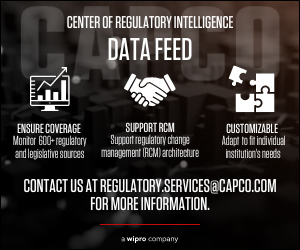|
This ABA Banking Journal newsletter is a free, twice-monthly supplement to the ABA Banking Journal magazine intended to help you stay on top of industry and policy news.
You can also stay abreast of banking news by visiting aba.com/BankingJournal, home to ABA Daily Newsbytes stories, digital exclusives, the ABA Banking Journal Podcast and more.
Time is running out for the Federal Reserve to make a simple but critical fix to ensure infusions of funds reach disadvantaged communities.
|
Only by providing a continually more effective digital experience—clear, well-informed, and efficient—can banks step fully into the digital future of banking.
|
At a community bank with limited staff and resources, tech transformation is all about setting priorities.
|
While financial services firms are “largely on track” for a successful transition away from Libor, half of them are still facing challenges related to systems and operations readiness, according to a new survey from Bloomberg.
|
Taking care to build and maintain these values drives business for banks when the future of the market is murky and consumers are navigating new challenges.
|
Since the start of the pandemic, banks have reported more sophisticated cyber attacks, said Lisa Arquette, associate director of the FDIC’s anti-money laundering and cyber fraud division.
|
ABA raised concerns regarding documentation for the Treasury Department’s Emergency Capital Investment Program, a program aimed at helping community development financial institutions and minority depository institutions support access to capital in underserved communities.
|
Under a new law signed by Mississippi Gov. Tate Reeves, only FDIC-insured banks can acquire or merge with Mississippi-chartered state banks.
|
Aaron Tapp, section chief for the FBI’s financial crimes section, told financial crimes professionals that it “might be time to have a conversation” between regulators and law enforcement to discuss how financial institutions can best provide actionable information to law enforcement while meeting their regulatory obligations.
|
The Federal Reserve board, FDIC, OCC and NCUA proposed to update rules governing administrative proceedings for financial institutions to allow the use of electronic communications and technology.
|
The Securities and Exchange Commission has proposed a much-anticipated set of requirements for public companies to disclose information about climate risks affecting them, their greenhouse gas footprints and any emissions-reduction plans they may have adopted.
|
Elizabeth Rosenberg, assistant secretary for terrorist financing and financial crimes at the Treasury Department, lauded the financial industry’s quick response to implement a growing list of sanctions against Russia and individuals close to President Putin, in light of the recent invasion of Ukraine.
|
|









